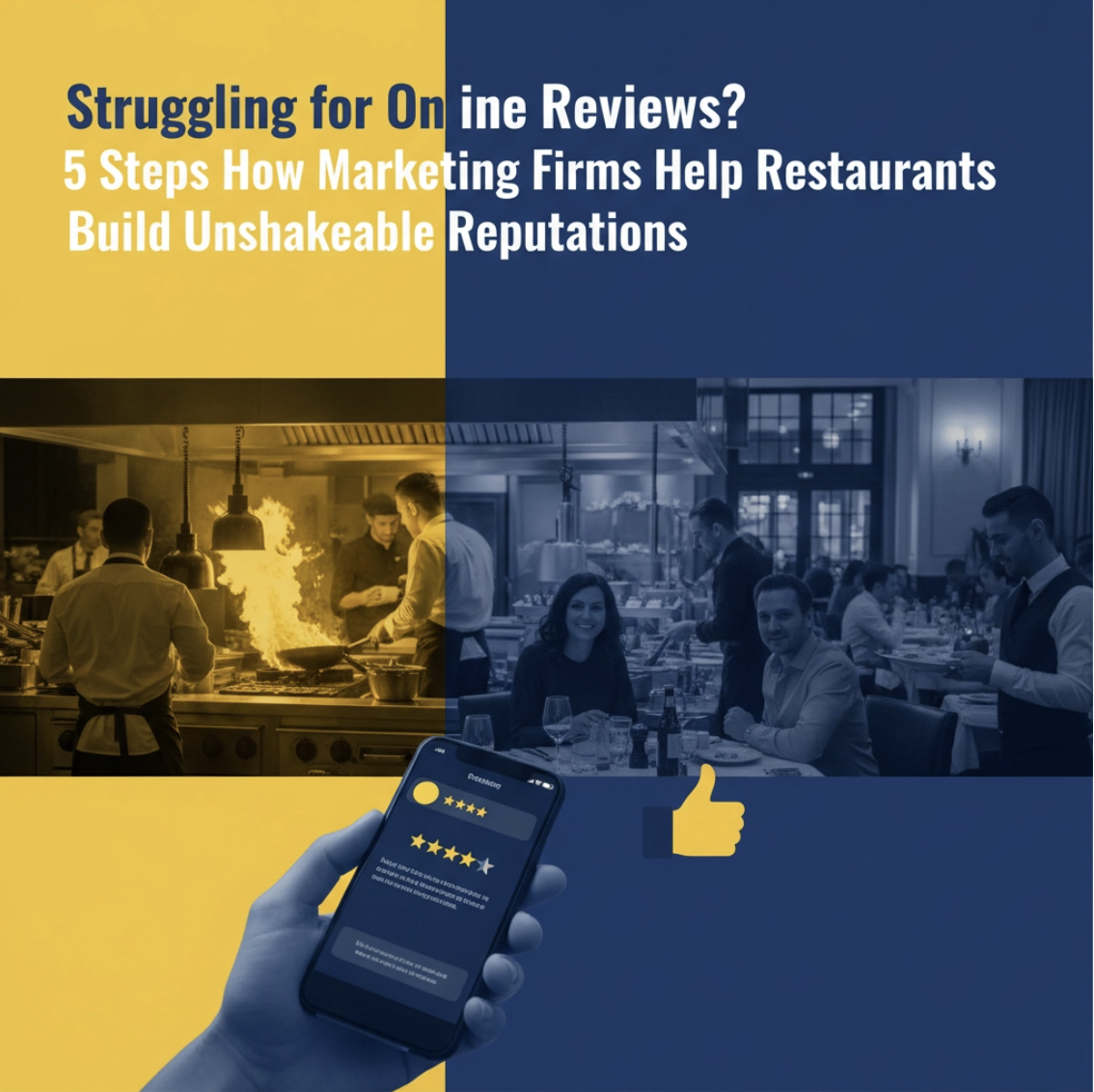Your restaurant serves incredible food. Your staff provides excellent service. But your online reviews tell a different story.
One bad review sits at the top of your Google listing. Customers walk past your door because they saw a two-star rating on Yelp. Meanwhile, your competitor down the street with mediocre food gets packed every night thanks to glowing online reviews.
This isn’t about luck. Marketing firms use proven systems to build bulletproof online reputations for restaurants across Canada. Here’s exactly how they do it.
Step 1: Set Up Professional Review Monitoring
Marketing firms don’t wait for restaurant owners to discover bad reviews. They create automated systems that track every mention across Google, Yelp, TripAdvisor, and Facebook.
The moment someone leaves a review, the system sends alerts. This means responses happen within hours, not days or weeks.
Speed matters. Customers expect quick responses to their feedback. A marketing firm responds to negative reviews professionally while the situation can still be fixed. They turn angry customers into loyal ones by addressing concerns immediately.

Professional monitoring covers more than just review sites. Marketing firms track social media mentions, food blogger posts, and local community forums. They catch reputation issues before they spread.
The system flags patterns too. If multiple reviews mention slow service or cold food, the marketing firm alerts the restaurant owner immediately. This prevents small problems from becoming major reputation disasters.
Step 2: Build Strategic Review Generation Systems
Marketing firms don’t leave positive reviews to chance. They create systematic approaches that encourage happy customers to share their experiences online.
The process starts with timing. Marketing firms identify the exact moments when customers feel most satisfied. This might be right after receiving their favorite dish or when paying the bill after excellent service.
They set up automated email sequences that reach out to customers 24-48 hours after their visit. The emails feel personal and make leaving a review simple with direct links to Google and Yelp.
Marketing firms also train restaurant staff on natural ways to request reviews. Instead of pushy sales tactics, servers learn to mention reviews during positive interactions. “We’d love to hear about your experience online if you enjoyed your meal tonight.”
QR codes on receipts and table tents make the process even easier. Customers scan the code and land directly on the restaurant’s Google Business listing, ready to leave a five-star review.
Step 3: Master Professional Response Strategies
Every review gets a response. Marketing firms never ignore feedback, positive or negative.
For positive reviews, responses are warm but brief. They thank the customer, mention specific details from their review, and invite them back. This shows other potential customers that the restaurant values feedback and pays attention to details.
Negative reviews get more complex treatment. Marketing firms follow proven templates that acknowledge the customer’s experience, apologize genuinely, and offer specific solutions. They never argue or make excuses.

The key is moving conversations offline quickly. Responses include contact information and invite customers to discuss their concerns directly with management. This prevents public back-and-forth arguments that damage reputation further.
Marketing firms also know when not to respond. Fake reviews or clearly malicious posts get handled through platform reporting systems instead of public responses that draw more attention.
Step 4: Optimize Complete Digital Presence
Reviews don’t exist in isolation. Marketing firms optimize every aspect of a restaurant’s online presence to support positive reputation building.
Google Business Profile gets priority attention. Marketing firms ensure all information stays current, photos showcase the best dishes, and posts highlight special events and menu items. An optimized profile ranks higher in local searches and attracts more positive reviews.
Social media becomes a review generation tool. Marketing firms create Instagram and Facebook content that naturally encourages engagement. Food photos, behind-the-scenes videos, and customer spotlights build emotional connections that translate into online reviews.

Website optimization supports the review strategy too. Marketing firms add review widgets that display positive feedback prominently. They create dedicated pages that make leaving reviews simple and obvious.
Local SEO efforts ensure the restaurant appears in “near me” searches where customers are most likely to leave reviews after visiting. Marketing firms optimize for location-based keywords and maintain consistent business information across all online directories.
Step 5: Implement Data-Driven Continuous Improvement
Marketing firms track everything. They measure review volume, response rates, sentiment changes, and the correlation between online reputation and actual revenue.
Monthly reports show restaurant owners exactly how their online reputation impacts business. They can see which review generation tactics work best and which response strategies convert negative experiences into positive outcomes.
The data reveals patterns that help improve actual service quality. If reviews consistently mention long wait times, the restaurant can address operational issues. If customers rave about specific dishes, those items get promoted more heavily.
Marketing firms also conduct competitor analysis. They track how nearby restaurants handle reviews and identify opportunities to differentiate. If competitors ignore negative feedback, professional responses become a competitive advantage.

A/B testing refines every element of the reputation management system. Marketing firms test different email templates, response strategies, and review request timings to optimize results continuously.
The analysis extends beyond reviews to encompass the entire customer journey. Marketing firms connect online reputation metrics to reservation systems, delivery platforms, and social media engagement to build comprehensive reputation strategies.
The System That Actually Works
Marketing firms succeed because they treat online reputation as a complete system, not individual tactics. Every positive interaction becomes an opportunity for a great review. Every negative experience becomes a chance to demonstrate excellent customer service publicly.
Professional reputation management services typically cost restaurants $300-800 monthly. The investment pays for itself quickly when improved online reputation drives consistent new customer acquisition.
Restaurant owners who handle reviews themselves usually respond inconsistently, miss opportunities, and struggle to generate positive feedback systematically. Marketing firms bring expertise, automation, and proven processes that create measurable results.
The difference shows in search results, customer acquisition costs, and revenue growth. Restaurants with professionally managed online reputations consistently outperform competitors who handle reviews casually.
Your restaurant deserves an online reputation that reflects the quality of your food and service. Marketing firms have the systems, expertise, and dedication to build exactly that kind of unshakeable reputation that fills tables consistently.
The choice is simple: keep struggling with reviews individually or implement professional systems that actually work.
Reputation Management


